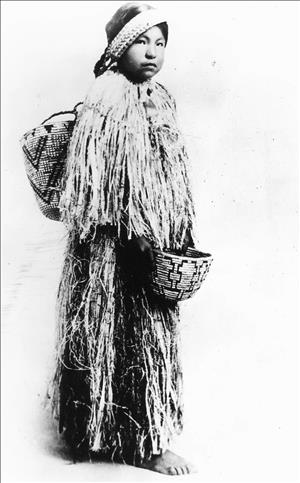The Muckleshoot Indian tribe is an amalgam of several Native American tribes that have inhabited the region surrounding the White and Green rivers for centuries. Located on a six square mile reservation between Auburn and Enumclaw, the tribe numbers in the thousands, and employs most of its members through fisheries, gaming, small business, and tribal government.
Inhabitants for Centuries
For centuries, the White River Valley and surrounding hillsides were inhabited by Native American tribes who made good use of the abundant fish and wildlife. The Skopamish tribe inhabited the central Green River valley, and the Smulkamish tribe lived near present-day Enumclaw. Other tribes included the Stkamish, Yilalkoamish, Tkwakwamish, and the Buklshuhl.
Villages included the Yelaco, consisting of 17 houses near present-day Green River Community College; the Quiats, on the Green River; and the Cublokum, one large house near Enumclaw. Salmon fishing was a staple in their economy, along with hunting and gathering. The tribes also trapped goats for their wool in the Cascade Mountains.
When Washington Territorial Governor Isaac Stevens (1818-1862) signed the Medicine Creek Treaty of 1854, no mention was made of the Muckleshoot tribe, as they were not named as such. Tribes from the Green and White rivers were to be moved to the Nisqually Reservation, unless a more suitable place could be found. On December 5, 1856, Stevens recommended the establishment of the Muckleshoot Reservation between the Green and White rivers, up the hill from their confluence. The river tribes settled on the new reservation, a former military tract. In 1874, an executive order defined the boundaries of the oddly configured, 3,533-acre area.
Over time, the reservation was enlarged and the Muckleshoot tribe incorporated other local tribes, as long as the members had one-eighth degree Muckleshoot blood. By the 1930s, the tribe numbered 194, but by the end of the century they numbered in the thousands. The Muckleshoots ratified their constitution on May 13, 1936, and their charter on October 21, 1936. The governing body is the nine-member Muckleshoot Indian Tribal Council, to which three new members are elected annually. The tribe is under the jurisdiction of the Western Washington Indian Agency, which provides assistance with economic development.
As a sovereign nation, the tribe conducts government-to-government relationships with other tribes, the United States, and state and local governments. Beginning in 1995, the tribe vigorously pursued economic development projects that led to the creation of the Muckleshoot Mall, the Muckleshoot Casino, and the White River Amphitheater. Proceeds from these ventures support tribal programs. In 1999, the tribe oversaw 1,400 jobs on a $31 million payroll, making it the second largest employer in southeast King County. That year, the tribe also contributed $1.5 million to local charities and nonprofit organizations.

